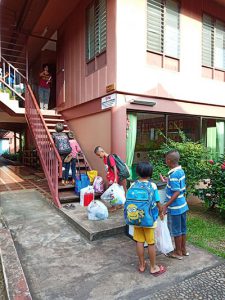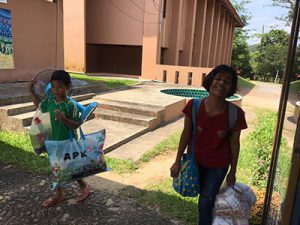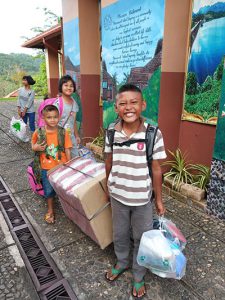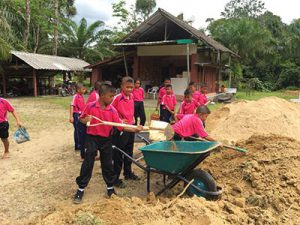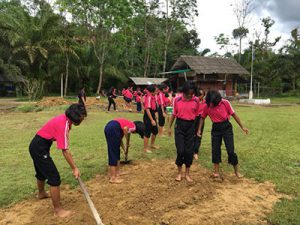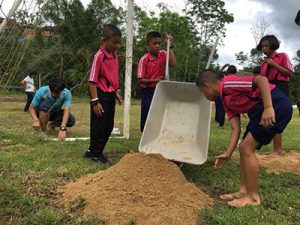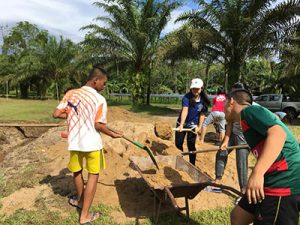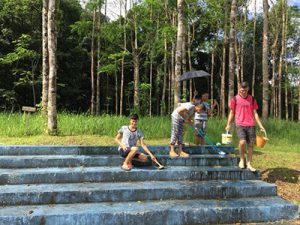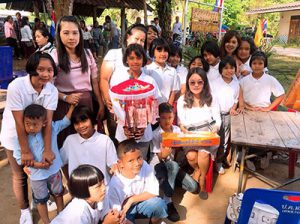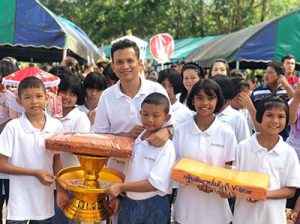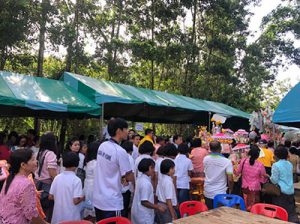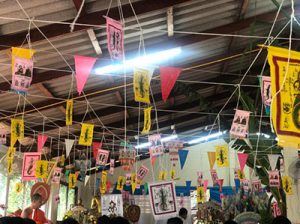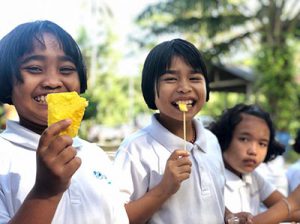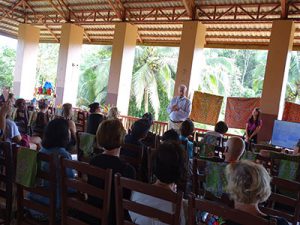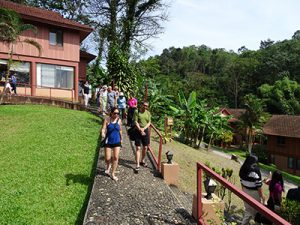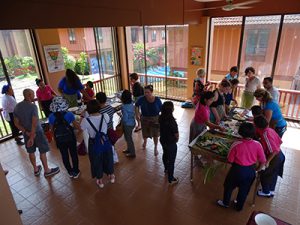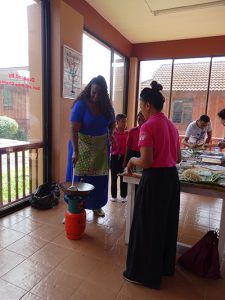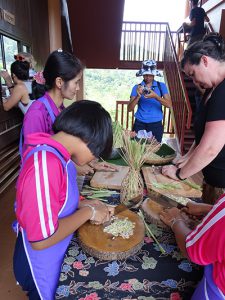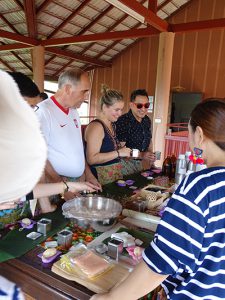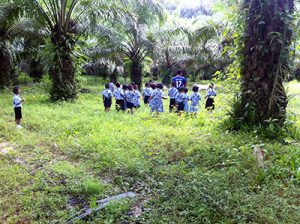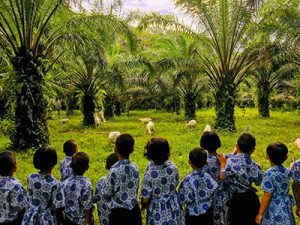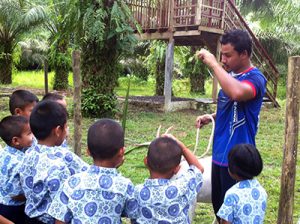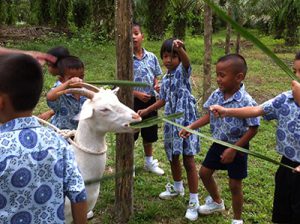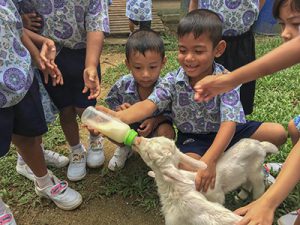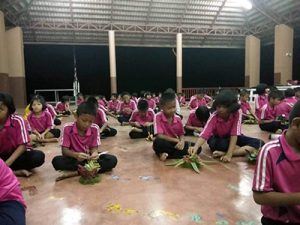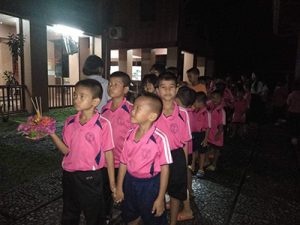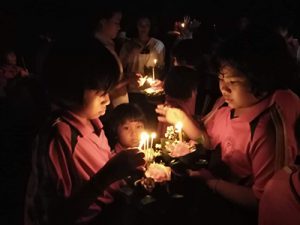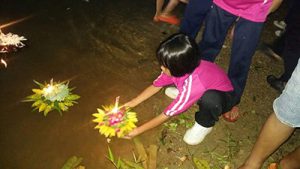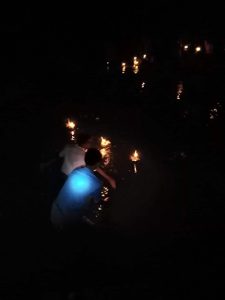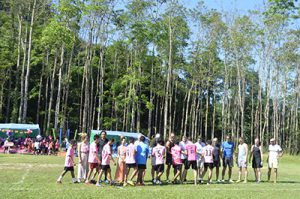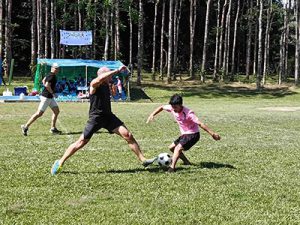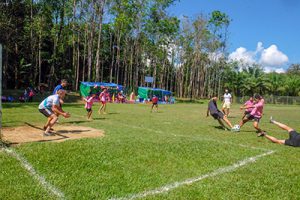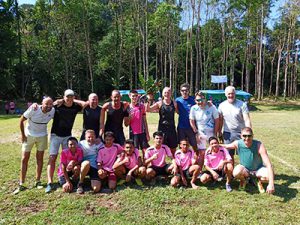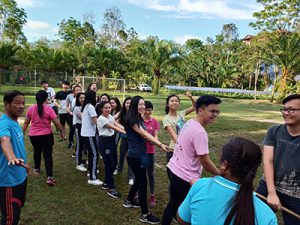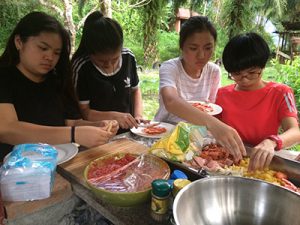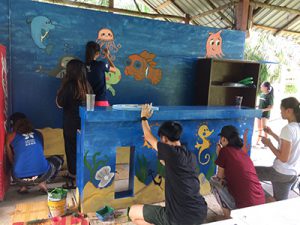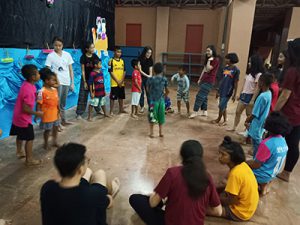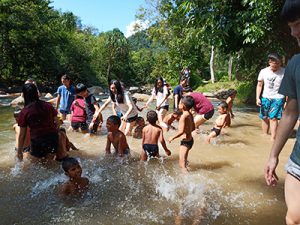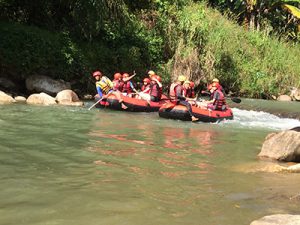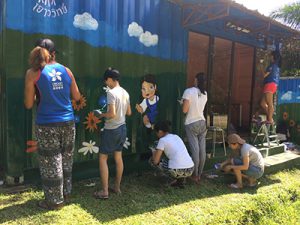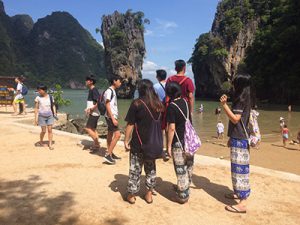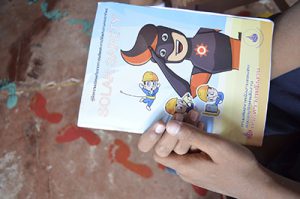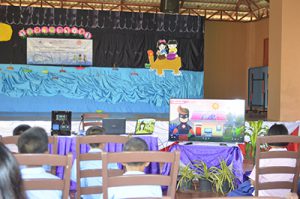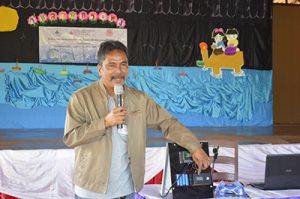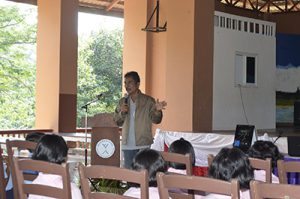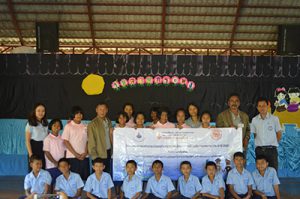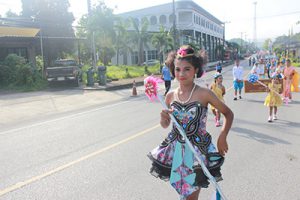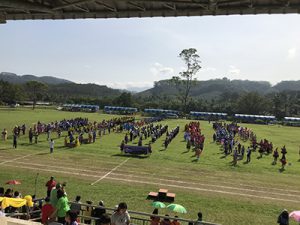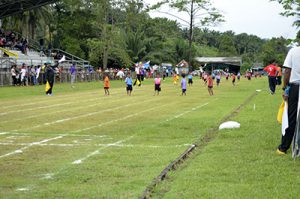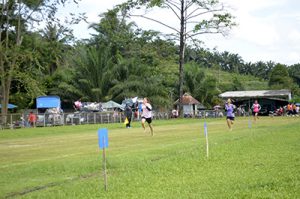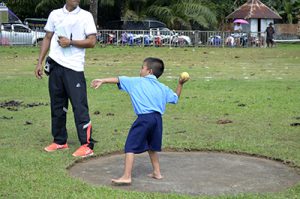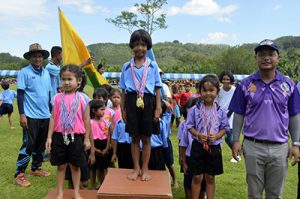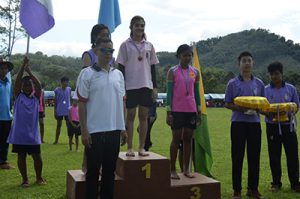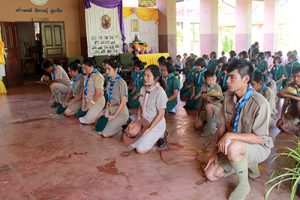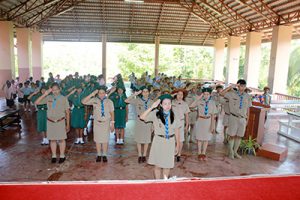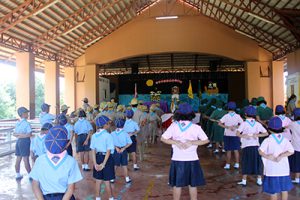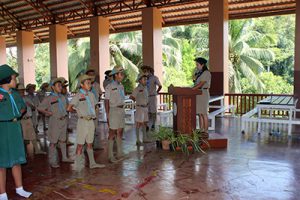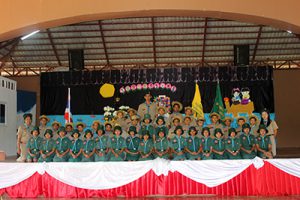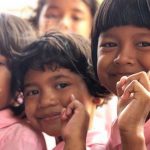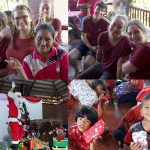November 2018 Newsletter
Doing Sports for Healthy Minds
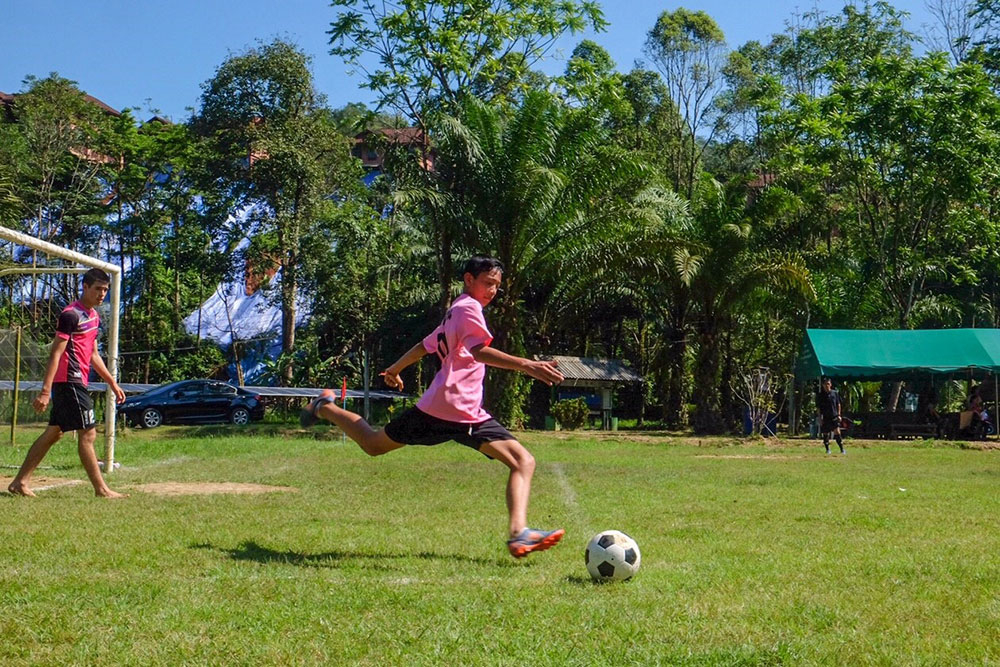
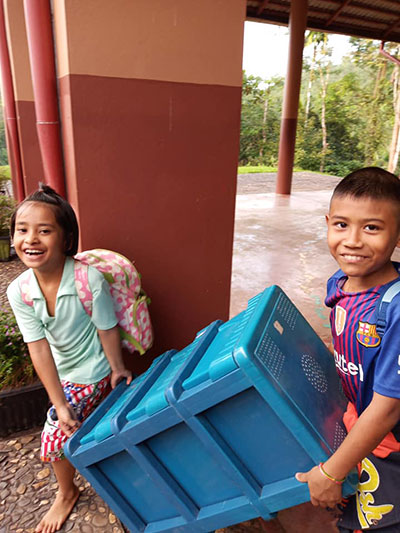
Bags on their backs, the children were arriving back at Yaowawit and were greeting one another. The school break in October was just almost three weeks–quite a short time–but the children seemed to have already missed their friends and Yaowawit–the home where they had been growing up as normal happy children.
One of those children who were busy unloading their dirty dresses from their bags was Apple. Known to be always neat and tidy, Apple could not stand dirty clothes and immediately dumped them into a big basket. Laughing and gesturing to smelly clothes, she shut the basket and called her dorm mate as they were ready to haul the basket to the laundry house.
Apple spent her school break with her sick grandfather in her hometown Krabi. Other than talking to him, she had nothing else to do at home. She had no other friends to play with. Her mother was away for work every day. So whenever she missed Yaowawit and her school friends, she would the books that she brought home with her.
Apple is in Primary Grade 1 now and doesn’t have any sponsor. If you are interested in sponsoring her, please contact us. She would love to meet somebody who cares about her.
In return the monks prayed for and sprayed the children and teachers with holy water. Yaowawit’s group walked along a passageway whose ceiling had been decorated with blessed emblems. Outside the temple, food vendors gave out free cookies, soft drinks and foods of various kinds.
In the last several days and including during the school break, there had been heavy rains at Yaowawit. When sunny weeks began again, Primary Grade 6 students got together to clean up the football field, which would also become the main sports field for the coming Sports Day at the school. The rain had washed away loose dirt from the field, leaving behind potholes. As the goal posts were also loosening the field definitely to be repaired.
The group patched the potholes using the dirt that the maintenance staff had earlier moved to the field from the landslide area. Side by side, the children worked early morning, completing only their tasks by lunch time. The rest was done by high school students.
On Saturday, high school students gathered in the football field to patch up potholes and scrub mould off the seat. The mould had appeared since the raining weeks. Afterwards, they continued to clean up the field from any debris almost daily as they began to use the field every day for football training.
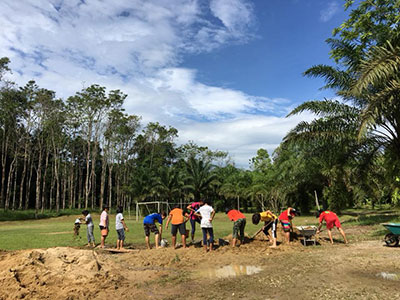
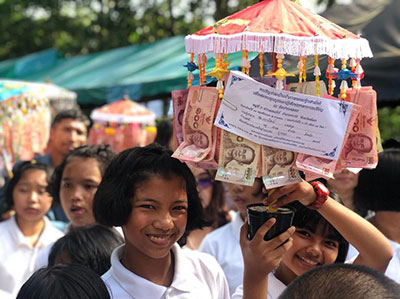
On Kathin Day, Yaowawit represented by the children and teachers donated several sets of robes for monks. This year Yaowawit picked Wat Pak Khlong, which is one of the highest respected temples in Kapong, to make the donation.
Aside from robes, the teachers also collected bills of both 100 and 1000 baths especially from those who were Thai Buddhists. The bills were then hung onto an umbrella-like mini bamboo decoration. Our previous year’s decorations were money bills on tree-like sticks.
This year’s decoration was intended to be umbrella-like to symbolise our need for protection from any natural disaster, because a landslide struck Yaowawit over a month before. The offering handed to the monks directly during that day’s procession would serve everyone at Yaowawit a safe and happy future.
That day the temple welcomed hundreds of peoples who had come from other places and the way to the temple entrance was crowded. Our children had to stay in a long queue to get a proper spot in the temple for the offering delivery to the monks.
Tourism Authority of Thailand (TAT) brought travel agencies from major cities of North America including Los Angeles (USA), New York (USA) and Toronto (Canada). These groups were looking for a new and unique destination for their travellers to visit in the future. This visit would place Yaowawit on their recommendation lists when they were promoting Thailand’s destinations to social travellers in North America.
We were pleased to show them as much as possible about the school, the children, the lodge and the life-skill programmes we had been running all these years, especially those in hospitality, English and permaculture training. This time we rolled a demonstration of these training programmes into workshops so that our guests got to know our students, teachers and staff while working on something fun and meaningful together.
These workshops showed how to cook Thai dishes, prepare lemongrass tea and make organic soap and candles. We were so glad that our guests had a positive experience as they described it in their feedback, which also encouraged us to keep the good work as our partnership would soon begin.
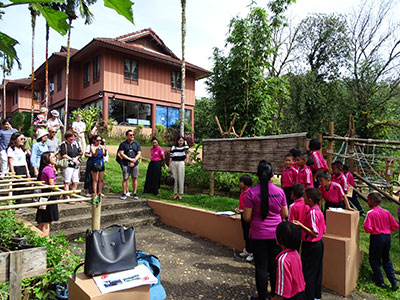
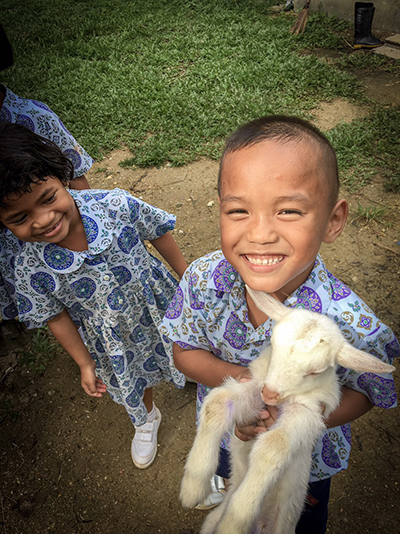
On most Fridays for the last two months, kindergartens had been visiting the goats house to feed the baby goats. Because the house was located on the far edge of the farm, it took a long walk all the way from the school down to the farm. The excitement to feed baby goats was all what they talked about along the way, especially the kindergarten who had not done it yet.
Khun Krit, who took care of the goats, welcomed the kindergartens to the goat house. Before the feeding could be done, the kindergartens listened to his brief tutorial on how to feed and pat the baby goats and their mothers. Khun Krit showed how to hold the milk bottles when feeding the baby goats and how to hold the coconut leaves when feeding their mothers.
Finally, Khun Krit told them that they did not need to be scared of the goats because the goats would not bite them. The kindergartens were then confident to play, feed, touch and talk with the goats.
Every year our children celebrate Loi Krathong as part of their cultural tradition. First, they learnt the moral value in Loi Krathong–letting go of any negative feelings and welcoming better future–with wishes they uttered by heart only. Second, they did research on the internet to find out best krathong materials–most quickly degradable in the water–and krathong designs. Like last year, banana trunks were also the choice this time. With hand-drawing designs in hands, the children worked on their krathongs using already prepared materials: banana trunks, leaves, candles, flowers, incense sticks and pins.
One of the children was Peng, a Primary Grade 1, who had decorated her krathong with her own favourite violet flowers, which were orchids she picked out from behind the school. Rather shyly, she admitted she did not know the name of the flower but justified her decision that violet would stand out against the colour of the leaves. Her friends agreed, and some decorated their krathongs the same way.
Most high school students were invited by Ban Bak Phu Temple to celebrate Loi Krathong there where other events were also held, for example a night market and student’s dance shows. Later, many people would then release krathongs in the big Ban Bak Phu River. Peng and other Primary students celebrated their Loi Krathong down at a small river along one edge of Yaowawit’s farm. Asked what her wish would be for Loi Krathong, she smiled and would not answer as it was supposed to be a secret, she said.
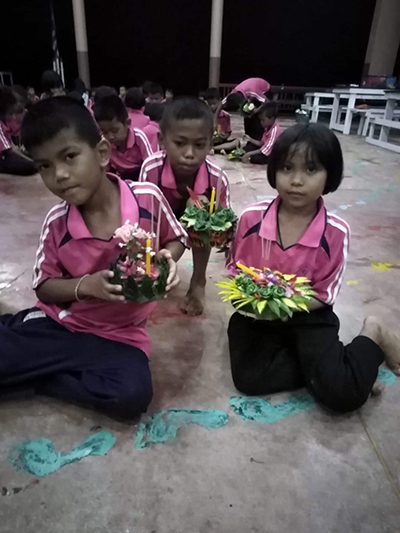
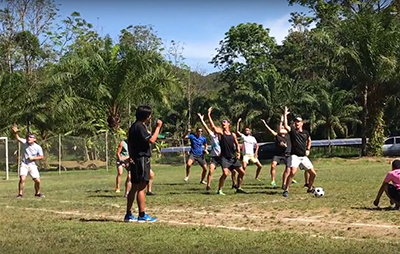
On the first day, Yaowawit’s headmistress opened the Sports Day, ushering in matches taking place that day between Yaowawit’s staff (Pink Team) and teachers (Blue Team) where Yaowawit’s students were included in both teams. Some of the popular games were volleyball, basketball, swimming, chairball and running.
On the second day was the highlight of the Sports Day, when our high schoolers challenged our professional cyclist guests in a friendly football match. Our cyclist guests came all the way from Phuket to Yaowawit a day earlier and stayed overnight to experience the children’ everyday life at the school.
That morning when the match would take place, the sun was unusually bright. The spectators who had watched several other matches earlier were ready for a tough one. The cheering groups continued to dance along with loud drums, setting up a mood for competition for both teams entering the field.
Right after they shook hands for the match, our cyclist guests performed a Haka, which is a traditional dance from New Zealand and is done in such a way to defeat an opponent. The unexpected performance entertained everyone in the field. The match was highly competitive, and one-on-one collisions happened many times. The final scores was 2:2.
Yaowawit was blessed with another privilege to host a social work visit from 16 international school students and 2 coordinating teachers (Teacher Michelle and Teacher Keenu) from Po Leung Kuk Choi Kai Yau (CKY) School, which is one of international private schools in Hong Kong. CKY School has been our supportive school partner for the last three years.
On arrival, CKY School students get to join our last sporting match, tug of war (or rope pulling), against the high school teams, who were gathering for a closing ceremony of Yaowawit’s Sports Day.
The next day, early Sunday morning, CKY School students visited a local market where they got a chance to see what local people were selling or buying and what Kapong town was like. Accompanied by our students, they also bought some local food and cookies After a lunch at Yaowawit, CKY School students went on a trek to a waterfall in a nearby forest.
The next several days, the CKY School students took part in both in- and outside-school activities that Yaowawit had customised for them based on their request. Many in-school activities allowed them to mix with our children.
We were sure CKY School students were learning a lot from the experience while staying at Yaowawit and interacting with our children as it was for our children to learn a lot from them.
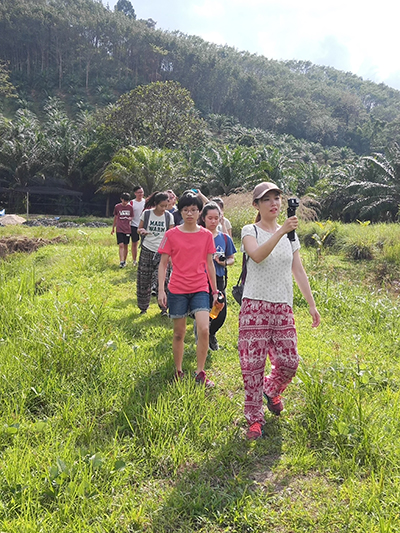
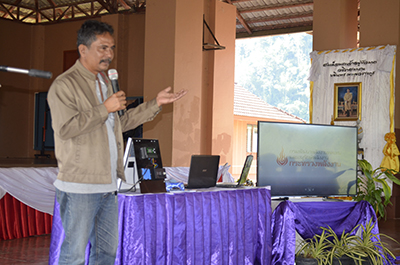
A group from Phang Nga’s Ministry of Energy gave a talk on energy conservation for Yaowawit’s students, teachers and staff. The talk was an outreach programme organised by the provincial ministry to demonstrate several simple steps that anyone could take to preserve energy around their places.
These ministry officials visited schools across Phang Nga. Before the talk started, they handed out booklets to the attendees. After a short presentation on renewable energy, they showed an animation video intended for our students on how they could take part in conserving energy around their school and dormitories.
Because Yaowawit has a solar panel grid, the officials also addressed the safety precautions the students had to take whenever they were around the solar grid. The officials showed the amount of energy containing in a miniature solar panel the size of a laptop and warned the students from the danger of such electricity if the students came into contact with it.
The rest of the event was an open forum where the participants asked questions and the ministry officials answered them.
Kapong District also held its sports days this month and invited student athletes from schools throughout the district. The first day started with a parade in which students dressed in different customs that represented their school signs, emblems or messages. Kapong’s mayor opened the sports days with a remark and assigned referees for each sporting match.
Yaowawit sent its student athletes in all sporting matches. One kindergarten group was for rope pulling, tennis-ball throwing and marathon. Primary student athletes took part in running various distances, whereas high school athletes participated only in short-distance running.
Competing against others, our athletes managed to win the majority of first-place medals.
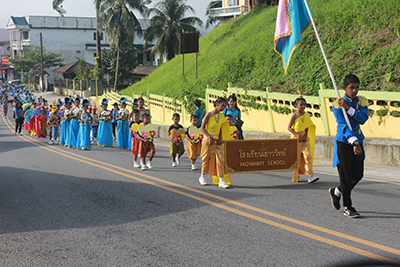
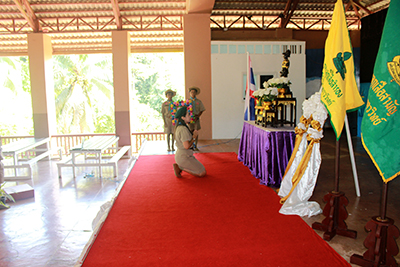
In relation to King Rama VI Royal Palms day, Yaowawit celebrated the birth of Thailand’s Scouts Movement in which the father of the Scouts movement was King Rama VI himself, or known in Thailand as King Vajiravudh. Aside from founding Thailand’s Scouts movement he also founded Chulalongkorn University, the first university in Thailand and invented the tricolour Thai flag.
The event started with Yaowawit’s Scouts members standing in rows and paying tribute to King Rama VI. The king’s statue was placed on a high cradle surrounded by bouquet of flowers on the stage. Beside the statue were a Thai flag and the flags of the Scouts movements symbolising some of the king’s accomplishments during his reign.
The teachers took the event to remind the Scouts members to be disciplined in their school life and to stay away from any drug abuse. The Scouts training was meant to build their characters ready for difficult challenges in the future. If they had any difficult problem in school, their teachers asked them to talk about it.

